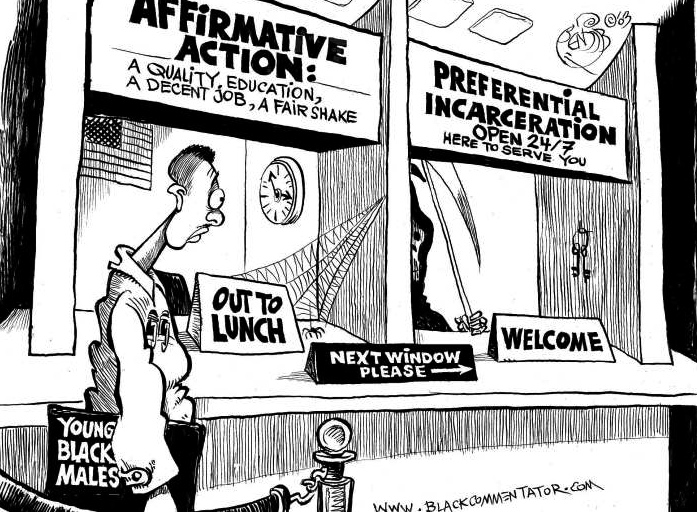
Earlier this year, the Corrections Corporation of America offered to take over state-run prisons, provided that they remain 90% stocked full of inmates ready for cheap labor. Now, the CCA — which runs 44 private prisons and detention centers across America — is gearing up to avoid paying taxes by claiming to be a real estate investment trust (REIT). The CCA is using the new trend in corporate maneuvering to basically claim that money its collects from the government to hold prisoners is just cash for rent.
The Internal Revenue Service has quietly approved the change, and the shady move is expected to save the CCA $70 million in tax dollars in 2013. To save millions, however, requires no changes to business as usual for the CCA. The chief executive of the Corrections Corporation, Damon T. Hininger, told investors in February that the new arrangement should help the CCA achieve its goal of “housing more and more population for federal, state and local levels as they grow or deal with overcrowding.”
Private prison corporations, however, are not the only businesses cashing in on what the New York Times called “new corporate clothes.”
“I’ve been in this business for 30 years, and I’ve never seen the interest in REIT conversions as high as it is today,” Robert O’Brien, the head of the real estate practice at Deloitte & Touche, told the New York Times. Penn National Gaming, a company that runs dozens of casinos, for example, has also received approval for the change.
But while the tax-saving trend has been taking off in corporate America, the Times questions whether allowing corporations to make this kind of change is ethical.
Here's a brief history of the purpose they are actually supposed to serve:
"When [REITs] were created in 1960, they were meant to be passive investment vehicles, like mutual funds, that buy up a broad portfolio of real estate — whether shopping malls, warehouses, hospitals or even timberland — and derive almost all of their income from those holdings. "One of the bedrock principles — and the reason for the tax exemption — was that the trusts do not do any business other than owning real estate. "But bit by bit, especially in recent years, that has changed as the I.R.S., in a number of low-profile decisions, has broadened the definition of real estate, and allowed companies to split off parts of their business that are unrelated to real estate. "Today, there are more than 1,000 real estate investment trusts, about 10 percent of them traded publicly on the stock market. Investors like them because, by law, they must distribute at least 90 percent of their taxable income to their shareholders — a particularly alluring prospect today, given the low interest rates paid by many other basic investments. "The benefits of converting are obvious for stockholders and corporate insiders as well. The conversion typically drives up a company’s stock price. Investors are drawn by the prospect of lucrative dividends under the new structure. The mere rumor that a company might convert has been enough to send its stock price soaring. "The trend has been a concern to advocates of the traditional trusts, who fear that the newcomers may eventually jeopardize the tax status of older funds that do not do any business other than owning real estate."
Originally published by AlterNet.
3 WAYS TO SHOW YOUR SUPPORT
- Log in to post comments












